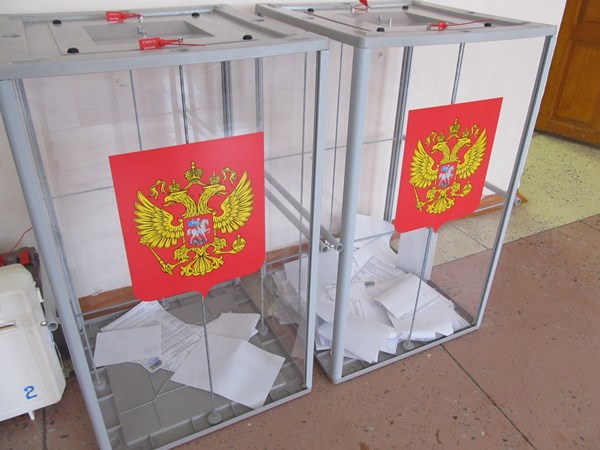Observers document violations in Russian presidential elections
Observers at the Russian presidential elections have reported numerous violations at the voting sites, Deutsche Welle writes.
Russian opposition politician Alexei Navalny, whose application to register as a candidate in the elections was rejected, gathered more than 33,000 observers for the elections. His observers report that the most typical violation was the transportation of people in vehicles for mass voting.
At one site in the Moscow province, buses brought in staff of Russia’s National Guard to vote.
Golos, a human rights movement, also reported violations such as mass transportation of voters, illegal agitation, denying observers access to the voting sites, and use of administrative resources to increase turnout.
In Moscow, 486 people were brought to voting site No. 803 “from a nearby factory”, and at voting site No. 1761 in Sergach in the Nizhny Novgorod province, there is a banner which says to vote for Vladimir Putin. Many observers and commission members from the candidates Ksenia Sobchak, Pavel Grudinin, and Grigory Yavlinsky were not permitted into the voting sites, usually because it was claimed that their candidate already had a registered observer.
Several voting stations attracted voters with free food, discounted products (especially in Khabarovsk and Khabarovsk Krai), discount vouchers (e.g. in the Moscow Lyublino District) or even blood donations for oncological diseases.
Nevertheless, Secretary Mayya Grishina of Russia’s Central Election Commission told reporters that as of 9:00 Moscow Time, no serious violations had been documented, and that the violations which were complained about were immediately rectified.
In Russian-annexed Crimea, where Ukraine and the EU consider it illegal for elections to take place, the heads of several major enterprises in Kerch were “obligated to ensure their staff’s participation in the voting”. This was reported by the Crimean Human Rights Group.
The human rights activists have also learned of incidences where the parents of children at several schools in Kerch and Simferopol were told that they must vote in order to “do their civil duty”. Some parents were asked to “report back” on the voting using the Viber messenger.
